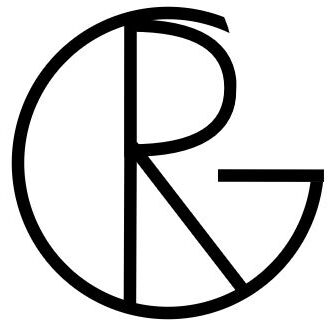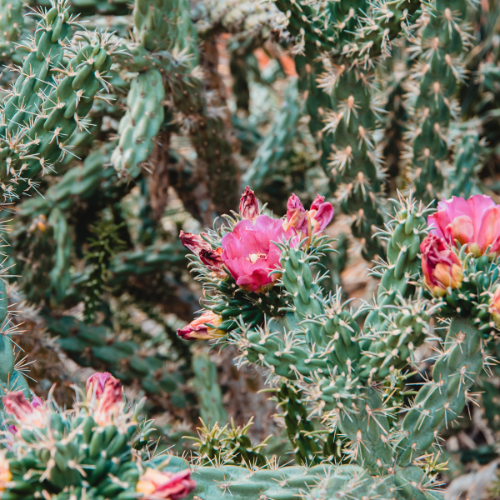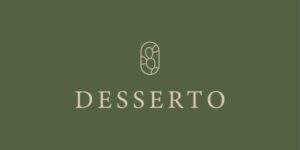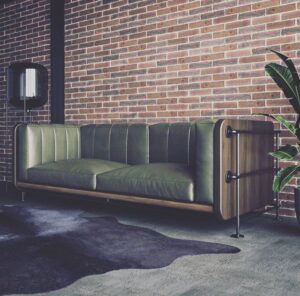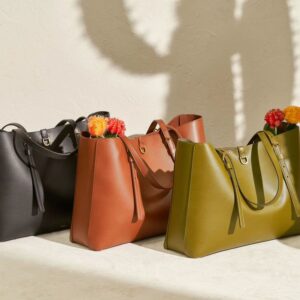Vegan leather is a fairly controversial topic within sustainable fashion because most mainstream leather is made from polyurethane. This material is not biodegradable and is impossible to recycle. Still, by many, it is seen as a sustainable alternative to leather because it uses no animal products. It is essentially a greenwashed version of leather with no actual good qualities.
On the contrary, plant-based leather is something we should actually be excited about. We have already heard about plant-based leather made from pineapple leaves, which is made by the company Piñatex. There are also substitutes made from other fruit remains such as oranges peels, mango, and apple.
But today, we will discuss another alternative namely cactus leather.
In October 2019, Adrián López Velarde and Marte Cázarez successfully showcased a leather substitute for animal leather, made from nopal, which is a cactus.

It took the men two years of research to create a marketable cactus leather. The trade name of their leather is Desserto®.
Verlade and Cázarez came up with the idea after working in the furniture, automotive, and fashion industries where they realized how big the problem of environmental pollution actually was. They became interested in reducing the environmental impact, left their job, and started the company, Adriano Di Marti, to focus on developing Desserto®.
Sustainability: Why Cactus leather?
Extreme drought and desertification are some of the future challenges that countries will need to face due to climate change. This will mainly affect farmers and small producers with an already low income. Therefore, it is necessary to find crops that will be able to withstand these extreme conditions such as high temperature, poor soil, and drought.
Cacti, specifically the nopal, have unique characteristics that are resilient to these conditions. The Nopal is able to grow on soil where other crops will not survive, and it can be used to restore degraded land. Nopal is originally from Mexico, but it can be cultivated all over the world. Nevertheless, Mexico is still the biggest producer worldwide.
Moreover, the Nopal, and other cacti, have the ability to store CO2. So increasing the amount of Nopal plantations can be a strategy to reduce the CO2 in the atmosphere.
To create one meter of Desserto® approximately 3 leaves are needed. The company only takes the mature leaves from the cactus without damaging the plant. Because of this, the plant can be used for up to 8 months.
To grow, the plant needs roughly 200 liters of water to create one kilogram of cactus. To compare, one kilogram of cotton needs up to 10,000 liters.
Adriano Di Marti offers cactus leather that is cruelty-free, partially biodegradable, and free of toxins. The leather has high durability and is resistant to rubbing, tearing, and abrasion. Due to these many benefits, it is an excellent sustainable alternative to animal leather or other synthetic leathers. Desserto® can be used for many different products such as handbags and footwear. It can also be used for couches and other furniture, and even for sports items such as boxing gloves.
Certifications & awards
The company has received many certifications to prove its sustainability. These certifications include USDA organic, OEKO-tex®, and Peta. It is also certified vegan and follows the Global Recycle Standard.
The company has received many awards for its innovative leather including the Good Design award, and the innovation award from LVMH.
I had the opportunity to see the men speak about Desserto® during the online Zero Waste Conference in October 2021. It was amazing to see how proud they are of their product, and rightfully so. It is an amazing innovation, and I am excited to see what the future holds for cactus leather.
For more information on Adriano di Marti, and Desserto® visit their website.
All pictures are taken from the internet and contain a link to the sites where I found them. All credits to the rightful owners.
